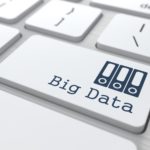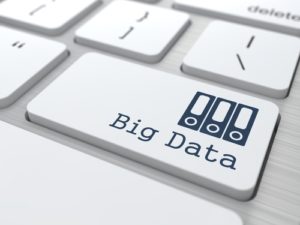The man who headed up the tech side of President Obama’s 2012 re-election campaign took issue with higher ed’s emphasis on Big Data

Harper Reed, who recently launched a mobile technology startup in Chicago after serving as chief technology officer for Obama’s 2012 campaign, said Oct. 29 at the State University of New York’s (SUNY) “Building a Smarter University” conference that universities’ focus on collecting and analyzing reams of data is “bulls***.”
Reed, according to a media report, denounced the term “Big Data” as a marketing tool meant to drive college and university IT officials toward expensive servers, and other technologies meant to store and analyze data.
It’s hardly the first time Harper has offered a harsh assessment of the current use and interest in Big Data.
At the CeBIT conference in Sydney, Australia last May, he said many schools and organizations didn’t have enough data to invest in Big Data tools.
“You probably have medium data,” Harper told the CeBIT conference attendees.
Respondents to the 2013 Campus Computing Project survey showed that higher education IT leaders are skeptical of big investments in collecting, managing, and analyzing data to improve student retention and guide students more efficiently toward a degree.
(Next page: Concern over sky-high expectations)
One in four survey respondents said investing in Big Data was “very effective,” compared to 62 percent who said technology-related on-campus teaching and learning investments were effective.
Kenneth C. Green, founding director of the Campus Computing Project, said higher education has lagged behind the corporate and government sectors in collecting and analyzing Big Data.
“Presidents and provosts have acknowledged they don’t do a very good job of using data for decision making,” Green said at the 2013 EDUCAUSE conference. “Having said that, there are areas on campus that do [use data effectively],” such as admissions and developments offices and food service departments. These departments “live in the world of data metrics,” he said, so they are more apt to use data to drive their practices.
A panel of Big Data experts expressed concern about the sky-high expectations for analytics in higher education, as some have pointed to Big Data as a transformational way of understanding teaching and learning.
Big Data may be transformational, the panelists said, but expecting that transformation to be immediate is unfair to campus technologists charged with compiling the mass amounts of information that can help steer students toward a degree.
“There’s no single algorithm that is going to predict everybody or a set of variables that is going to be able to predict everything,” said EDUCAUSE panelist Sherry Woosley, associate director of institutional effectiveness at Ball State University. “It’s complicated work. It’s messy, which is not what they taught me in stats class.”
- Research: Social media has negative impact on academic performance - April 2, 2020
- Number 1: Social media has negative impact on academic performance - December 31, 2014
- 6 reasons campus networks must change - September 30, 2014

Comments are closed.